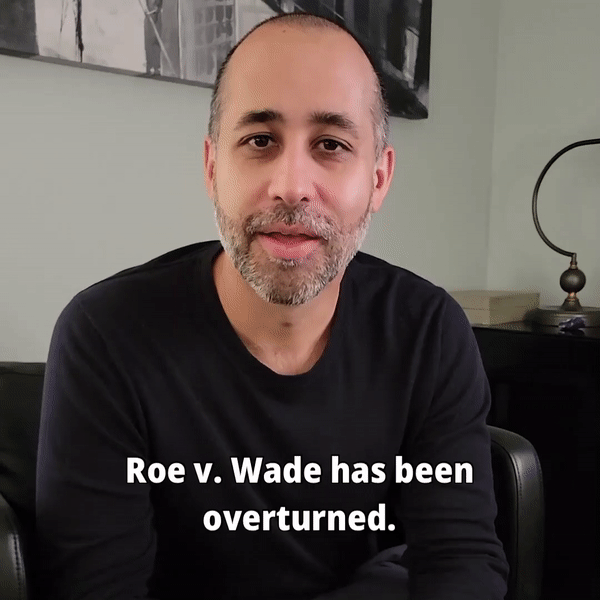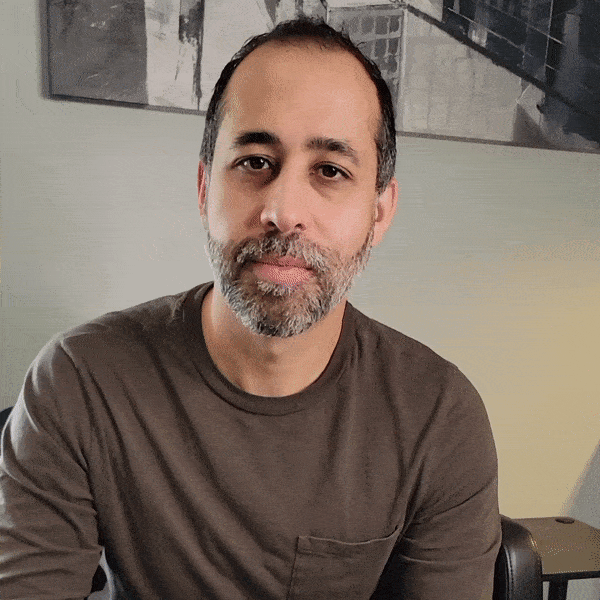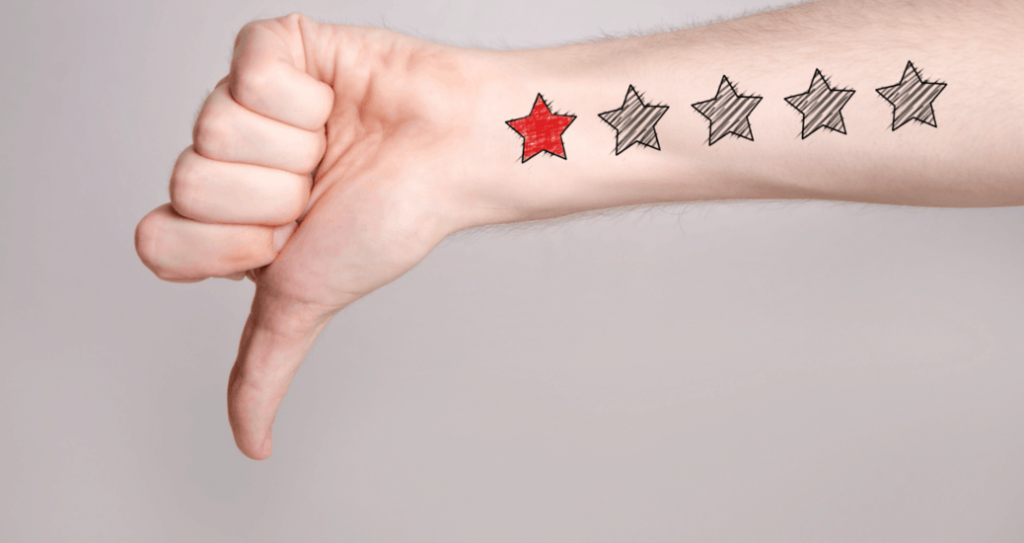On June 1, the Supreme Court ruled that Abercrombie & Fitch discriminated against a teenager who applied for a job selling children’s clothing because she wore a hijab. The reaction to the decision may be more interesting than the decision itself. It seems a perfect barometer of social philosophy.
The decision has been hailed as a step forward for protection of religious practices in the workplace, a blow to Islamophobia, an important move towards acceptance of religious diversity or an embrace of feminism.
Some in the employment law community describe it as “no big deal.”
Others see a fundamental change in the interpretation of Title VII of the Civil Rights Act of 1964 that unfairly burdens small businesses.
Take your pick, but the willingness of the Roberts court to take up questions of religious discrimination may ultimately prove to be one of its hallmarks. That may be the biggest change of all.
What Happened to Samantha Elauf
In 2008, then seventeen-year-old Samantha applied for a job as a sales associate (clerk, model, brand ambassador – it was a job at the mall) at an Oklahoma Abercrombie Kids store. She is a practicing Muslim and, at the interview, wore a hijab in accordance with her understanding of religious requirements.
At the time, Abercrombie had a “Look Policy” that forbade caps, deemed too informal for the East Coast preppy image the company wanted to project.
Significantly, however, during the interview, there was no discussion of her headscarf. She neither told the interviewer that she wore it for religious reasons, nor did she ask for an accommodation that would permit her to wear it, notwithstanding the Look Policy.
The interviewer later admitted that she assumed that Samantha was Muslim, that she covered her head for religious reasons and that she would, if hired, ask to wear it at work.
Samantha was originally given a rating that would have qualified her for employment. Management then intervened and the interviewer was directed not to hire her. The word was that her hijab was not in compliance with the Look Policy and that the company wanted to avoid having to deal with her anticipated request for religious accommodation.
Samantha and family got in touch with the Council for Islamic-American Relations. CAIR got in touch with the U.S. Equal Employment Opportunity Commission. The EEOC sued Abercrombie on Samantha’s behalf, claiming that its refusal to hire her violated Title VII of the Civil Rights Act of 1964.
The District Court granted the EEOC summary judgment on the issue of liability and awarded Samantha $20,000 in damages. The Tenth Circuit reversed and awarded Abercrombie summary judgment, concluding that an employer cannot be liable under Title VII for failing to accommodate a religious practice until the applicant or employee asks for it.
The narrow legal question the Supreme Court faced this term was whether Samantha had to ask before making a discrimination claim.
The Court concluded that she didn’t. As long as a Samantha, or any plaintiff, can show that the need for religious accommodation is a motivating factor in an adverse employment decision, then an employer need not have direct knowledge. The decision short-circuits tedious teleological arguments about what knowledge is and when it happens.
The Court reversed the Tenth Circuit’s judgment for Abercrombie and remanded the case back to that court for further consideration.
Let the spinning begin…
Proposition 1: The End of Small Business
Title VII requires that employers consider requests for reasonable accommodation of religious practices if doing so will not place an undue burden on the employer. The requirement attempts to balance the interests of employers and employees.
Can Employers Dodge the Question? On a factual level, Abercrombie’s claim that it did not actually know that Samantha’s headscarf had religious significance is disingenuous.
Today few interviewers meeting a lovely dark-eyed young woman wearing a hijab would assume that she was just having a bad hair day. And, to be fair, very few seventeen-year-olds have the requisite familiarity with Title VII to ask for accommodation of religious practice or the presence of mind never to leave the house without an employment lawyer
However, simply to play devil’s advocate, what if the religious practice were less well-known? At what point are employers expected to recognize a need for accommodation without being directly asked? As reported in The Business Journals, Karen Harned of NFIB Small Business Legal Center, raises that point,
Employers who ask about an applicant’s religion and then don’t extend a job offer for completely unrelated reasons can still be accused of discrimination and dragged into court. Now, that same employer can be sued on the basis of discrimination if they don’t ask whether accommodations will be needed.
The Court was not persuaded. On a practical level, interviewers can raise accommodation issues without asking about religious belief. A question about ability to comply with a hat policy might be a way to elicit an explicit request for religious accommodation, for example. Then an accommodation request can be dealt with in a straightforward way.
Is the Court Re-Writing Statutes? The U.S. Chamber of Commerce’s amicus brief in support of Abercrombie, in which NFIB joined, raised a fairly technical issue about the difference between a disparate treatment claim and a disparate impact claim under Title VII.
A disparate treatment claim requires a deliberate intent to discriminate and may entitle a plaintiff to financial compensation. A disparate impact claim may arise from the unintended result of a facially neutral policy. With a disparate impact claim, employers may be required to revisit policies that have bad and unintended consequences, but they are generally not required to pay damages.
The Chamber argued that Abercrombie’s Look Policy applied to all employees and, although perhaps ill-advised, was facially neutral. Their position was that it could not be the basis of a disparate treatment claim or a damage award.
This is effectively the position of Justice Clarence Thomas in his dissenting opinion. Dissents are important because they can become the majority rationale in a subsequent decision.
What’s the Matter with Doing Business? Finally, of course, some commentators just ask “If a retailer decides their brand needs to be extended to the employees’ attire on the job, what is so outrageous about declining to hire someone whose attire does not extend that brand.” Why can’t business be free to do business?
The answer lies at the heart of employment law. The capitalist ideal of free bargaining presupposes that both parties work from a relatively equal position. Beautiful dream, but the brutal fact is that this is not so. Recent data about income inequality highlights the crisis.
As an aside and from a taste and discretion perspective, it is also probably time to recognize that anyone who wants to make the full throated free-market argument about women who choose to be modest should probably stay away from examples involving Hooters.
Proposition 2: No Big Deal
The facts of the case are quite singular. There was evidence that Samantha didn’t get the job because of her hijab. Abercrombie admitted that the possibility of an accommodation request was part of their decision making. How often does a religious discrimination plaintiff get facts like that?
Other employers with a Look Policy or something similar that excludes people for racial, national origin, gender, gender preference, age etc.reasons will take note. They can be depended on to adapt to market pressure, which may provide more immediate relief than any eventual bending of the arc of history toward justice.
A principal proponent of this sunnier view is Lucretia Clemons, an employment lawyer and partner at the Philadelphia office of Ballard Spahr. As reported on their website,
Employers who are at the forefront of diversity practices deal with these issues in very different ways. The focus is on being inclusive. While Abercrombie’s policy is about their look and their brand, most employers in my experience wouldn’t care about that. They would want a good employee. And they’d make the accommodation.
Proposition 3: A Very Big Deal
The editorial writers have had a field day. As one writer claimed,
With Islamophobia proving to be alive and well in America, it’s crucial to protect the freedoms of those who are constantly being subjected to discrimination. The ruling serves as a small victory for Muslim-Americans. We still have a long way to go, but it is a step toward progress, nonetheless.
Others claim it as a victory for religious liberty that extends even beyond Muslims. The decision was welcomed by a wide variety of religious groups, including Sikhs, Orthodox Jews, Seventh-day Adventists and evangelical Christians.
The conversation gets a little strange, however, when Elauf is discussed in the same warm terms as the Court’s recent decision in Hobby Lobby, which actually restricts employee rights in favor of the religious rights of employers or Indiana’s Religious Freedom Restoration Act, which permits business owners to refuse service to gay and lesbian people.
From a religious feminist perspective, some see the decision as a victory for women’s rights to be judged in the workplace for ability rather than appearance,
[T]his monumental ruling is more than just about the right to wear religious attire at work. This decision also touches upon the sensitivities of female appearance at the work place and how society continues to scrutinize women based on their appearance.
There is something for everyone in Elauf, perhaps even internally inconsistent messages. This is frequently the case where religion and politics meet.
Perhaps the most interesting thing for Court watchers is the frequency with which the Justices seem to be willing to negotiate this intersection. As a practical matter and with Ramadan approaching, perhaps the most important message for employers is that they need to be aware of and sensitive to our country’s growing religious diversity.



![Ultimate Legal Breakdown: Negative Online Reviews [e288]](https://www.pashalaw.com/wp-content/uploads/2017/06/Ultimate-Legal-Breakdown-Online-Reviews-1-1024x543.jpg)


![How Malls Can Require Stores To Be Open On Thanksgiving [e240]](https://www.pashalaw.com/wp-content/uploads/2015/11/iStock_000066139999_Small-1.jpg)

![The Federal Law That Would Prevent Yelp Gag Clauses [e237]](https://www.pashalaw.com/wp-content/uploads/2015/11/iStock_000008520917_Small.jpg)
![How Nightclub Cover Charges Sparked Discrimination Claims [e234]](https://www.pashalaw.com/wp-content/uploads/2015/10/iStock_000041229130_Small.jpg)
![How One Business Was Awarded Money From An Untrue Yelp Review [e226]](https://www.pashalaw.com/wp-content/uploads/2015/09/iStock_000036615928_Small.jpg)
![How Reddit Caused An Uproar With Unpaid Volunteers [e206] How Reddit Caused An Uproar With Unpaid Volunteers](https://www.pashalaw.com/wp-content/uploads/2015/07/How-Reddit-Caused-An-Uproar-With-Unpaid-Volunteers.png)
![Best Of The Second Hundred Episodes! [e201] Best Of The Second Hundred Episodes!](https://www.pashalaw.com/wp-content/uploads/2015/06/Best-Of-The-Second-Hundred-Episodes.jpg)




![Law in the Digital Age: Exploring the Legal Intricacies of Artificial Intelligence [e323]](https://www.pashalaw.com/wp-content/uploads/2023/11/WhatsApp-Image-2023-11-21-at-13.24.49_4a326c9e-300x212.jpg)
![Unraveling the Workforce: Navigating the Aftermath of Mass Layoffs [e322]](https://www.pashalaw.com/wp-content/uploads/2023/07/Untitled-design-23-300x212.png)
![Return to the Office vs. Remote: What Can Employers Legally Enforce? [e321]](https://www.pashalaw.com/wp-content/uploads/2023/01/Pasha_LSSB_321_banner-300x212.jpg)
![Explaining the Hans Niemann Chess Lawsuit v. Magnus Carlsen [e320]](https://www.pashalaw.com/wp-content/uploads/2022/10/LAWYER-EXPLAINS-7-300x169.png)
![California v. Texas: Which is Better for Business? [313]](https://www.pashalaw.com/wp-content/uploads/2021/07/Pasha_LSSB_CaliforniaVSTexas-300x212.jpg)
![Buyers vs. Sellers: Negotiating Mergers & Acquisitions [e319]](https://www.pashalaw.com/wp-content/uploads/2022/06/Pasha_LSSB_BuyersVsSellers_banner-300x212.jpg)
![Employers vs. Employees: When Are Employment Restrictions Fair? [e318]](https://www.pashalaw.com/wp-content/uploads/2022/05/Pasha_LSSB_EmployeesVsEmployers_banner-1-300x212.jpg)
![Vaccine Mandates Supreme Court Rulings [E317]](https://www.pashalaw.com/wp-content/uploads/2022/02/WhatsApp-Image-2022-02-11-at-4.10.32-PM-300x212.jpeg)
![Business of Healthcare [e316]](https://www.pashalaw.com/wp-content/uploads/2021/11/Pasha_LSSB_BusinessofHealthcare_banner-300x212.jpg)
![Social Media and the Law [e315]](https://www.pashalaw.com/wp-content/uploads/2021/10/WhatsApp-Image-2021-10-06-at-1.43.08-PM-300x212.jpeg)
![Defining NDA Boundaries: When does it go too far? [e314]](https://www.pashalaw.com/wp-content/uploads/2021/09/Pasha_LSSB_NDA_WordPress-2-300x212.jpg)
![More Than a Mistake: Business Blunders to Avoid [312] Top Five Business Blunders](https://www.pashalaw.com/wp-content/uploads/2021/06/Pasha_LSSB_Blunders_WP-1-300x212.jpg)
![Is There a Right Way to Fire an Employee? We Ask the Experts [311]](https://www.pashalaw.com/wp-content/uploads/2021/02/Pasha_LSSB_FireAnEmployee_Website-300x200.jpg)
![The New Frontier: Navigating Business Law During a Pandemic [310]](https://www.pashalaw.com/wp-content/uploads/2020/12/Pasha_LSSB_Epidsode308_Covid_Web-1-300x200.jpg)
![Wrap Up | Behind the Buy [8/8] [309]](https://www.pashalaw.com/wp-content/uploads/2020/11/Pasha_BehindTheBuy_Episode8-300x200.jpg)
![Is it all over? | Behind the Buy [7/8] [308]](https://www.pashalaw.com/wp-content/uploads/2020/09/iStock-1153248856-overlay-scaled-300x200.jpg)
![Fight for Your [Trademark] Rights | Behind the Buy [6/8] [307]](https://www.pashalaw.com/wp-content/uploads/2020/07/Fight-for-your-trademark-right-300x200.jpg)
![They Let It Slip | Behind the Buy [5/8] [306]](https://www.pashalaw.com/wp-content/uploads/2020/06/Behind-the-buy-they-let-it-slip-300x200.jpg)
![Mo’ Investigation Mo’ Problems | Behind the Buy [4/8] [305]](https://www.pashalaw.com/wp-content/uploads/2020/05/interrobang-1-scaled-300x200.jpg)
![Broker or Joker | Behind the Buy [3/8] [304] Behind the buy - Broker or Joker](https://www.pashalaw.com/wp-content/uploads/2020/04/Joker-or-Broker-1-300x185.jpg)
![Intentions Are Nothing Without a Signature | Behind the Buy [2/8] [303]](https://www.pashalaw.com/wp-content/uploads/2020/04/intentions-are-nothing-without-a-signature-300x185.jpg)
![From First Steps to Final Signatures | Behind the Buy [1/8] [302]](https://www.pashalaw.com/wp-content/uploads/2020/04/first-steps-to-final-signatures-300x185.jpg)
![The Dark-side of GrubHub’s (and others’) Relationship with Restaurants [e301]](https://www.pashalaw.com/wp-content/uploads/2015/04/When-Competition-Goes-Too-Far-Ice-Cream-Truck-Edition-300x201.jpg)
![Ultimate Legal Breakdown of Internet Law & the Subscription Business Model [e300]](https://www.pashalaw.com/wp-content/uploads/2019/05/Ultimate-Legal-Breakdown-of-Internet-Law-the-Subscription-Business-Model-300x196.jpg)
![Why the Business Buying Process is Like a Wedding?: A Legal Guide [e299]](https://www.pashalaw.com/wp-content/uploads/2019/03/futura-300x169.jpg)
![Will Crowdfunding and General Solicitation Change How Companies Raise Capital? [e298]](https://www.pashalaw.com/wp-content/uploads/2018/11/Will-Crowdfunding-and-General-Solicitation-Change-How-Companies-Raise-Capital-300x159.jpg)
![Pirates, Pilots, and Passwords: Flight Sim Labs Navigates Legal Issues (w/ Marc Hoag as Guest) [e297]](https://www.pashalaw.com/wp-content/uploads/2018/07/flight-sim-labs-300x159.jpg)
![Facebook, Zuckerberg, and the Data Privacy Dilemma [e296] User data, data breach photo by Pete Souza)](https://www.pashalaw.com/wp-content/uploads/2018/04/data-300x159.jpg)
![What To Do When Your Business Is Raided By ICE [e295] I.C.E Raids business](https://www.pashalaw.com/wp-content/uploads/2018/02/ice-cover-300x159.jpg)
![General Contractors & Subcontractors in California – What you need to know [e294]](https://www.pashalaw.com/wp-content/uploads/2018/01/iStock-666960952-300x200.jpg)
![Mattress Giants v. Sleepoplis: The War On Getting You To Bed [e293]](https://www.pashalaw.com/wp-content/uploads/2017/12/sleepopolis-300x159.jpg)
![The Harassment Watershed [e292]](https://www.pashalaw.com/wp-content/uploads/2017/12/me-2-300x219.jpg)
![Investing and Immigrating to the United States: The EB-5 Green Card [e291]](https://www.pashalaw.com/wp-content/uploads/2012/12/eb-5-investment-visa-program-300x159.jpg)
![Responding to a Government Requests (Inquiries, Warrants, etc.) [e290] How to respond to government requests, inquiries, warrants and investigation](https://www.pashalaw.com/wp-content/uploads/2017/10/iStock_57303576_LARGE-300x200.jpg)
![Ultimate Legal Breakdown: Employee Dress Codes [e289]](https://www.pashalaw.com/wp-content/uploads/2017/08/Ultimate-Legal-Breakdown-Template-1-300x159.jpg)
![Ultimate Legal Breakdown: Negative Online Reviews [e288]](https://www.pashalaw.com/wp-content/uploads/2017/06/Ultimate-Legal-Breakdown-Online-Reviews-1-300x159.jpg)
![Ultimate Legal Breakdown: Social Media Marketing [e287]](https://www.pashalaw.com/wp-content/uploads/2017/06/ultimate-legal-breakdown-social-media-marketing-blur-300x159.jpg)
![Ultimate Legal Breakdown: Subscription Box Businesses [e286]](https://www.pashalaw.com/wp-content/uploads/2017/03/ultimate-legal-breakdown-subscription-box-services-pasha-law-2-300x159.jpg)
![Can Companies Protect Against Foreseeable Misuse of Apps [e285]](https://www.pashalaw.com/wp-content/uploads/2017/01/iStock-505291242-300x176.jpg)
![When Using Celebrity Deaths for Brand Promotion Crosses the Line [e284]](https://www.pashalaw.com/wp-content/uploads/2017/01/celbrity-300x159.png)
![Are Employers Liable When Employees Are Accused of Racism? [e283] Racist Employee](https://www.pashalaw.com/wp-content/uploads/2016/12/Are-employers-liable-when-an-employees-are-accused-of-racism-300x159.jpg)
![How Businesses Should Handle Unpaid Bills from Clients [e282] What to do when a client won't pay.](https://www.pashalaw.com/wp-content/uploads/2016/12/How-Businesses-Should-Handle-Unpaid-Bills-to-Clients-300x159.png)
![Can Employers Implement English Only Policies Without Discriminating? [e281]](https://www.pashalaw.com/wp-content/uploads/2016/11/Can-Employers-Impliment-English-Only-Policies-Without-Discriminating-300x159.jpg)
![Why You May No Longer See Actors’ Ages on Their IMDB Page [e280]](https://www.pashalaw.com/wp-content/uploads/2016/10/IMDB-AGE2-300x159.jpg)
![Airbnb’s Discrimination Problem and How Businesses Can Relate [e279]](https://www.pashalaw.com/wp-content/uploads/2016/09/airbnb-300x159.jpg)
![What To Do When Your Amazon Account Gets Suspended [e278]](https://www.pashalaw.com/wp-content/uploads/2016/09/What-To-Do-When-Your-Amazon-Account-Gets-Suspended-1-300x200.jpg)
![How Independent Artists Reacted to Fashion Mogul Zara’s Alleged Infringement [e277]](https://www.pashalaw.com/wp-content/uploads/2016/08/How-Independent-Artists-Reacted-to-Fashion-Mogul-Zaras-Alleged-Infringement--300x159.jpg)
![Can Brave’s Ad Replacing Software Defeat Newspapers and Copyright Law? [e276]](https://www.pashalaw.com/wp-content/uploads/2016/08/Can-Braves-Ad-Replacing-Software-Defeat-Newspapers-and-Copyright-Law-300x159.jpg)
![Why The Roger Ailes Sexual Harassment Lawsuit Is Far From Normal [e275]](https://www.pashalaw.com/wp-content/uploads/2016/07/WHY-THE-ROGER-AILES-SEXUAL-HARASSMENT-LAWSUIT-IS-FAR-FROM-NORMAL-300x159.jpeg)
![How Starbucks Turned Coveted Employer to Employee Complaints [e274]](https://www.pashalaw.com/wp-content/uploads/2016/07/iStock_54169990_LARGE-300x210.jpg)
